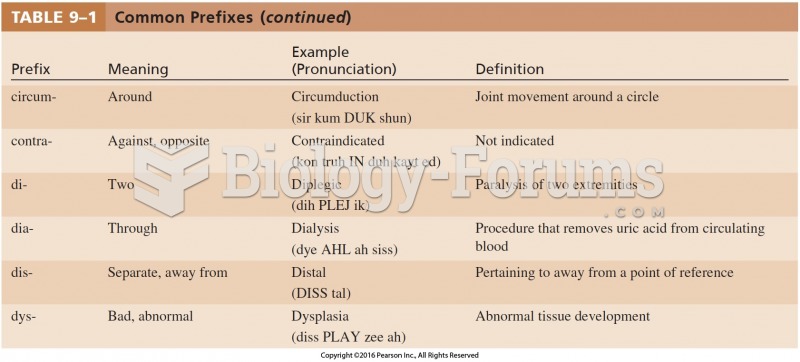|
|
|
The strongest synthetic topical retinoid drug available, tazarotene, is used to treat sun-damaged skin, acne, and psoriasis.
The average human gut is home to perhaps 500 to 1,000 different species of bacteria.
The Centers for Disease Control and Prevention has released reports detailing the deaths of infants (younger than 1 year of age) who died after being given cold and cough medications. This underscores the importance of educating parents that children younger than 2 years of age should never be given over-the-counter cold and cough medications without consulting their physicians.
Although not all of the following muscle groups are commonly used, intramuscular injections may be given into the abdominals, biceps, calves, deltoids, gluteals, laterals, pectorals, quadriceps, trapezoids, and triceps.
Interferon was scarce and expensive until 1980, when the interferon gene was inserted into bacteria using recombinant DNA technology, allowing for mass cultivation and purification from bacterial cultures.
 Vertebral compression Fractures of the spine (vertebra) can cause severe ”band-like” pain that radia
Vertebral compression Fractures of the spine (vertebra) can cause severe ”band-like” pain that radia
 Conjunctivitis, with the characteristic “pinkeye” appearance. A yellow crusty exudate is also common
Conjunctivitis, with the characteristic “pinkeye” appearance. A yellow crusty exudate is also common





